Expert lessons from executive MBA alumni
Roula Khalaf, Editor of the FT, selects her favourite stories in this weekly newsletter.
Lenton K Davies
American. Kellogg, due to graduate 2022. Senior director of operations and head of supply chain solutions, Capital One Financial, Washington DC
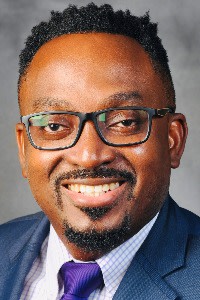
How did you discuss the support that you needed with your employers?
The conversation is not only with your manager — it is with your team and colleagues. There are 24 hours in a day and something has to give sometimes. You need to decide: is it dinner with my family? Submitting a project late? Asking my colleagues to cover for me, or my boss to step in? I call that the 360 conversation, where I talk to everyone around me. It is the same with my family and close friends. And at work: my managers, colleagues and staff.
There is the cohort, too. We all know the times in our lives when things get busy and where folks might be out of action for a week or two. We got you, and the professors understand that, too. The 360 approach is having a conversation about time commitments and what it really means. Kellogg is one of the top executive programmes in the US, if not the world, and it is not easy. You are investing in yourself. That will not just pay off for me, it helps my family, employer and friends.
Yogesh Gupta
British. ESCP Business School, graduated 2019. Founder and chief executive, Gaston, London
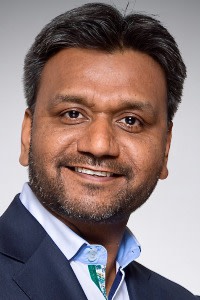
What was the most important lesson from the course?
My most important lesson from the EMBA was to challenge yourself. In business, many people live within their comfort zones, but the rewards and development opportunities are enormous when you break your own “glass ceiling”.
Indeed, attending an EMBA from a top business school was a life-long goal for me. I wanted to enhance my professional capabilities and gain a wider perspective on business — including the socio-economic, legal, geopolitical and regulatory environment — so I could go from being a management consultant to a global leader.
The programme at ESCP used applied learning and focused on real-world business problems. Through this, I developed leadership skills based on my own style. This helped me to master high-level, executive decision-making using my strengths.
FT Executive MBA Ranking 2022: the top 100
Find out which schools are in our ranking of EMBA degrees. Also learn how the table was compiled and read the rest of our coverage at ft.com/emba.
Tribeni Chougule
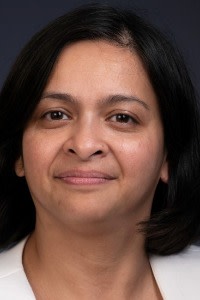
British. Warwick, graduated 2022. Director of inclusive impact and sustainability, Visa, London
What are your survival tips for balancing work and study?
Sacrifices will need to be made and it is a personal choice on how to manage that. If, like me, you are returning to studies after a long gap — or did not study an undergraduate degree in the same country as your course — then make time during the first modules to acclimatise to studying again.
One thing that I would have loved to know prior to starting the course is the preparation you can do to have a smoother start to being a student. Some of the things that come to mind are understanding academic writing and Harvard referencing, as well as scheduling in the pre-readings. Do not underestimate the effort required, and make sure you have support or expectations well set at work, so you can manage your mental and emotional health while on this journey. Ensure that your family has also bought into your plans and is there to support you.
Cecília Zago
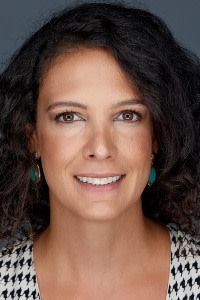
Brazilian. IMD, graduated 2021. Executive director of global supply planning (fragrance), The Estée Lauder Companies, Switzerland
Why did you decide to study for an EMBA?
I believe learning is the most powerful engine we have to grow as professionals and individuals. For many years, I was certain an EMBA would be a great addition to my engineering background. I want to be an executive leader and, as my career progressed, I reflected on how I needed to prepare for the next step. I knew the EMBA would give me the relevant skills, including leadership, strategic thinking, an innovative mindset and financial knowledge.
But I also knew I could not do it too early. In 2019 — one year after moving from Brazil to Switzerland — I decided it was the right moment. That was one of the best decisions I have made. The course was transformational and I have changed as a leader — becoming more reflective, inclusive and understanding the areas of the business I can influence and have a positive impact.
Kam Shing Leung
Chinese. CUHK, graduated 2021. Associate director, Arup, Hong Kong
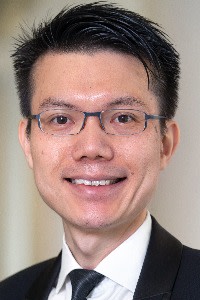
How has the course changed your work or career?
Alongside securing a promotion, I have become more confident in my career and have strived to make the most out of it. Originally, I trained as an urban planner, but I now have the vocabulary to understand the business world and exchange ideas effectively with my clients and business partners.
I appreciate the complexity behind the success of a company and have become more willing to work with its “imperfections” to achieve greater good. I also understand the concept of intrapreneurship and how it can support both my desire for breakthroughs and the need of a healthy organisation to constantly reinvent itself to stay ahead of the game. The course also strengthened my network outside Hong Kong. During my stay in Shenzhen, I saw a lot of my classmates and alumni in the Greater Bay Area of China — I even acquired two new business connections with links to Hong Kong.
Digital conference: Spotlight on the Executive MBA
Join global education editor Andrew Jack and business school experts around the world for a free online event on Wednesday October 19, focusing on career impact, insights into the 2022 ranking, and themes from managing disruption to ESG. Register here
Comments